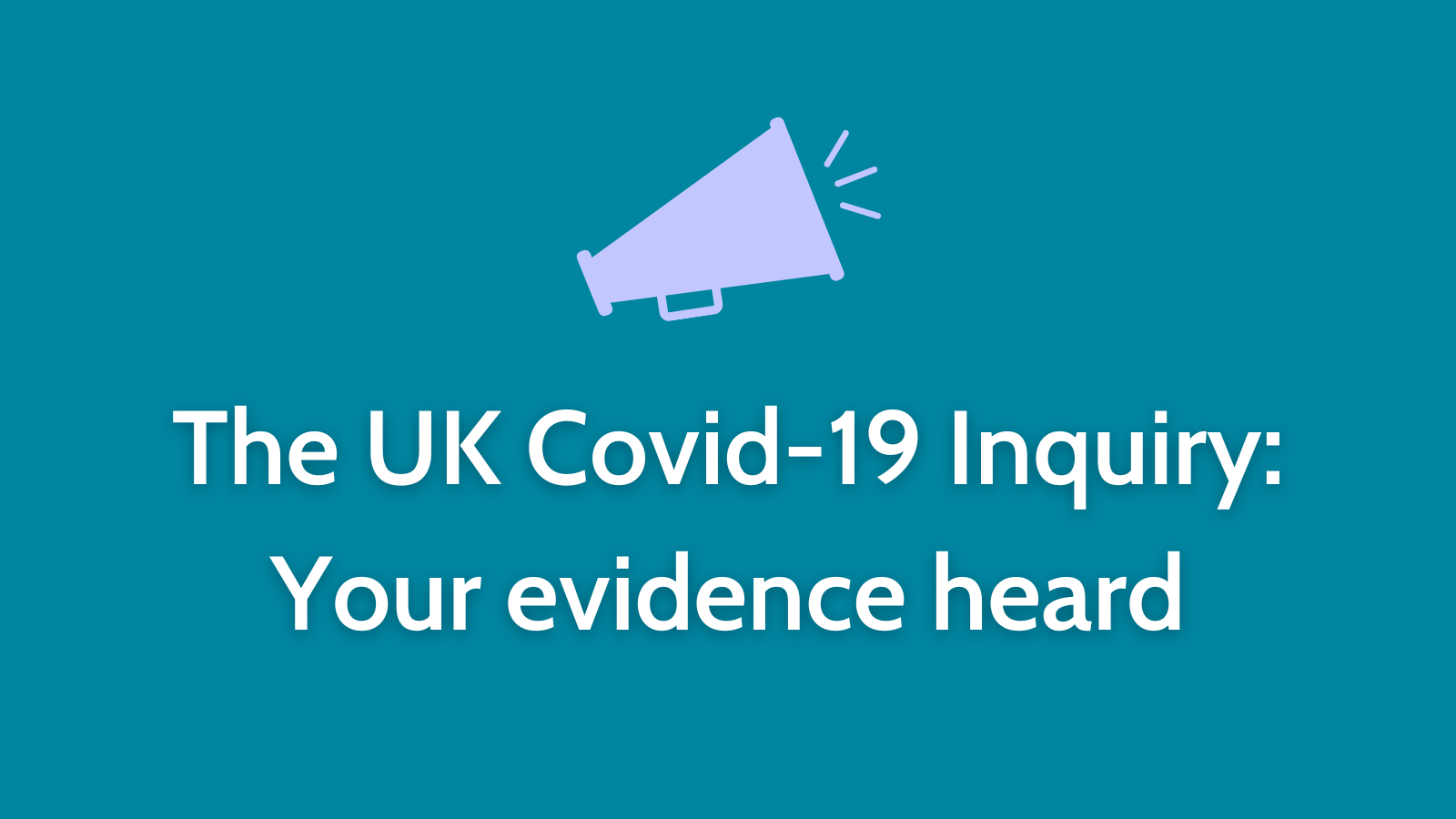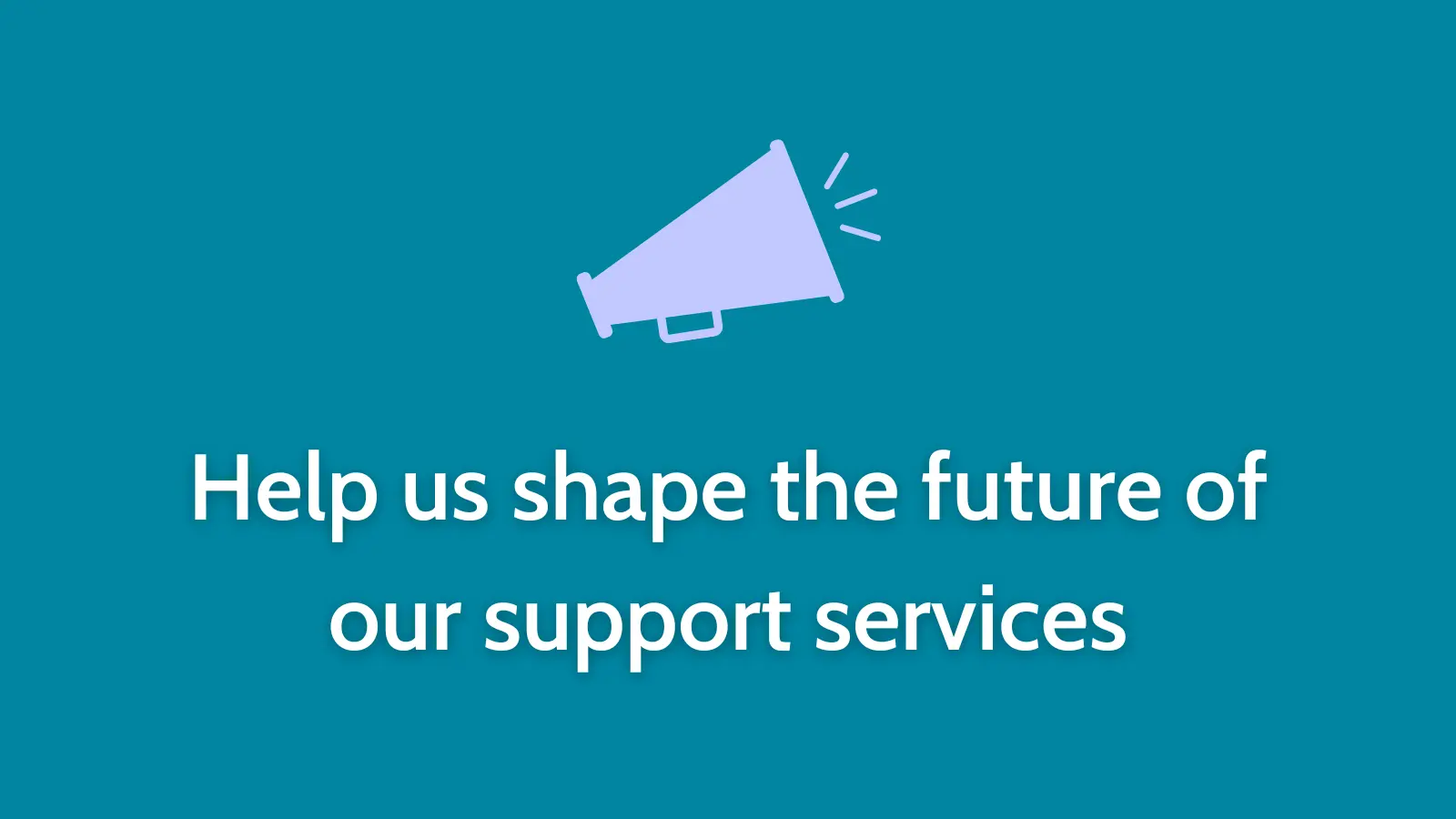UK Covid-19 Inquiry: Miscarriage Association calls for lessons to be learned to prevent distress and trauma related to pregnancy loss in future pandemics
7th October 2024

The distress and trauma suffered by people experiencing pregnancy loss during the pandemic was today spotlighted at the UK Covid Inquiry, in evidence from the Miscarriage Association.
The MA was one of 13 leading pregnancy, birth and early parenting charities who joined together to highlight the often devasting impact of restrictions to access care throughout 2020 and beyond.
Our collective evidence argued that the voices of those represented by the charities were marginalised in pandemic decision-making, with their needs and circumstances largely disregarded or deprioritised.
Vicki Robinson, Chief Executive of The Miscarriage Association, said:
“The impact of decisions made during the pandemic caused significant additional distress and upset at a time when people were already feeling isolated, fearful and vulnerable.
“As well as a reduction in face-to-face care and reduced ability to have partners present when receiving devastating news, many also faced reduced options for management of miscarriage, suffering unnecessary physical and emotional pain.”
Two service users*, supported by The Miscarriage Association, have shared their experiences of pregnancy loss during the pandemic:
Michaela Taylor

“Before the pandemic, my husband and I had experienced one miscarriage and the loss of our son, Zachary at 5 months pregnant. Shortly after we fell pregnant with our rainbow baby girl, Amelie who was born in the height of the pandemic in June 2020. When Amelie was 1, we decided to try for a sibling. We then experienced three recurrent miscarriages in the space of 6 months and each one was equally as heartbreaking.
“Even with a history of PTSD from previous losses, I had to be scanned alone, and be given the news on my own, having no one to hold me when my world fell apart all over again. The rules seemed harsh anyway, but when you have experienced such deep loss, it’s truly heartbreaking. To top it all off, the gynaecology ward, where you are sent when under 13 weeks pregnant had no early pregnancy support, so I dealt with it all alone.”
Vicki Jennings
 “I was incredibly lucky that I didn’t actually find out I had miscarried by myself – my husband Ian and I had been for a private scan (which he was allowed to attend) and it was there that the sonographer said that she suspected I had a blighted ovum.
“I was incredibly lucky that I didn’t actually find out I had miscarried by myself – my husband Ian and I had been for a private scan (which he was allowed to attend) and it was there that the sonographer said that she suspected I had a blighted ovum.
“Devastated, we then had to go to the early pregnancy unit at the hospital, where I had to go alone for a scan to confirm it. However, during this scan it was discovered I had 2 pregnancy sacs, but both were empty. The hospital wanted to wait for 2 weeks to see if anything developed and then I had to go for another scan. The miscarriage was confirmed, and I decided to have medical treatment to remove the pregnancy; again, I had to do this alone due to Covid regulations. Several weeks later I became quite unwell, and it was discovered the pregnancy had not been completely removed with the medication, so I then had to undergo an MVA by myself to complete the miscarriage.
“The whole thing was very traumatic, my body took a long time to heal, and the isolation of a miscarriage was only further compounded by the fact that I had to go through most of the scans and treatment alone.”
Vicki Robinson adds:
“Whilst we can’t change the past, we hope that the lessons learned from this Inquiry will help prevent similar pain and suffering in the future for those experiencing pregnancy loss.”
Key concerns addressed by the charities, include:
- Maternity Services Deprioritised: Maternity services were not prioritised in pandemic healthcare planning, leaving pregnant women and new parents unsupported, particularly in cases involving complications, birth trauma, or bereavement.
- Failure to Address Specific Needs: Certain groups, such as those experiencing multiple pregnancies, neonatal admissions or from ethnic minority backgrounds, had distinctive needs that went unheard and unmet.
- Inconsistent Guidance: The Government’s lack of clear leadership and accountability in conjunction with NHS maternity and neonatal services resulted in widespread confusion. Hospitals and healthcare providers were left grappling with ambiguous, often late, guidance that varied across regions. This inconsistency led to immense strain on services, as well as psychological distress for families.
- Long-Term Impact: The traumatic experiences faced by pregnant women and new parents during this period continue to have lasting effects on their mental health, and with the impact on newborn babies’ development as yet unknown.
Jenny Ward, CEO of The Lullaby Trust and representing the 13 charities giving evidence to the Inquiry, said: “We have worked as a group of charities to shed light on the impact of decisions made about maternity care during the pandemic. These often poor and ill thought through decisions compounded existing inequalities and contributed to enduring trauma experienced by those who relied upon maternity services during the pandemic. We urge the Inquiry to listen hard and take on board our evidence – and for the Government to do everything in its power to prevent future failings in maternity care.”
Thank you again to the almost 600 people who courageously shared their experiences with us to inform the inquiry and to try to ensure that lessons are learned for the future.
The charities presenting evidence to the Inquiry include:
Aching Arms, Baby Lifeline, Bliss, The Ectopic Pregnancy Trust, Group B Strep Support, ICP Support, The Lullaby Trust, The Miscarriage Association, National Childbirth Trust, Pelvic Partnership, Pregnancy Sickness Support, Tommy’s and Twins Trust.
*Further case studies are available on request.

